
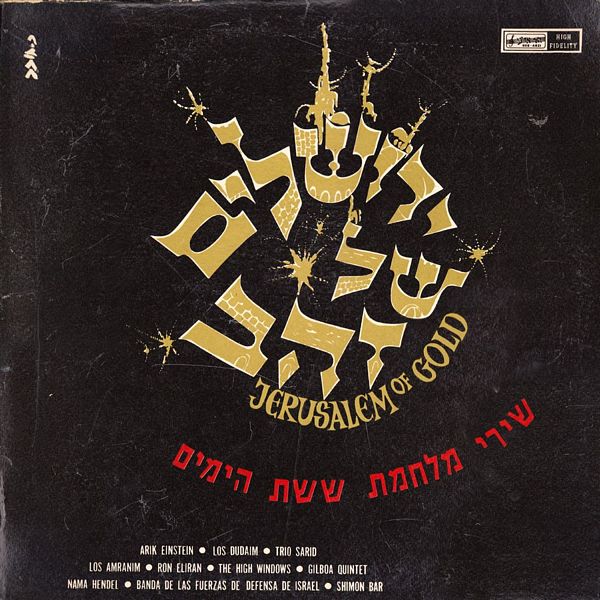 |
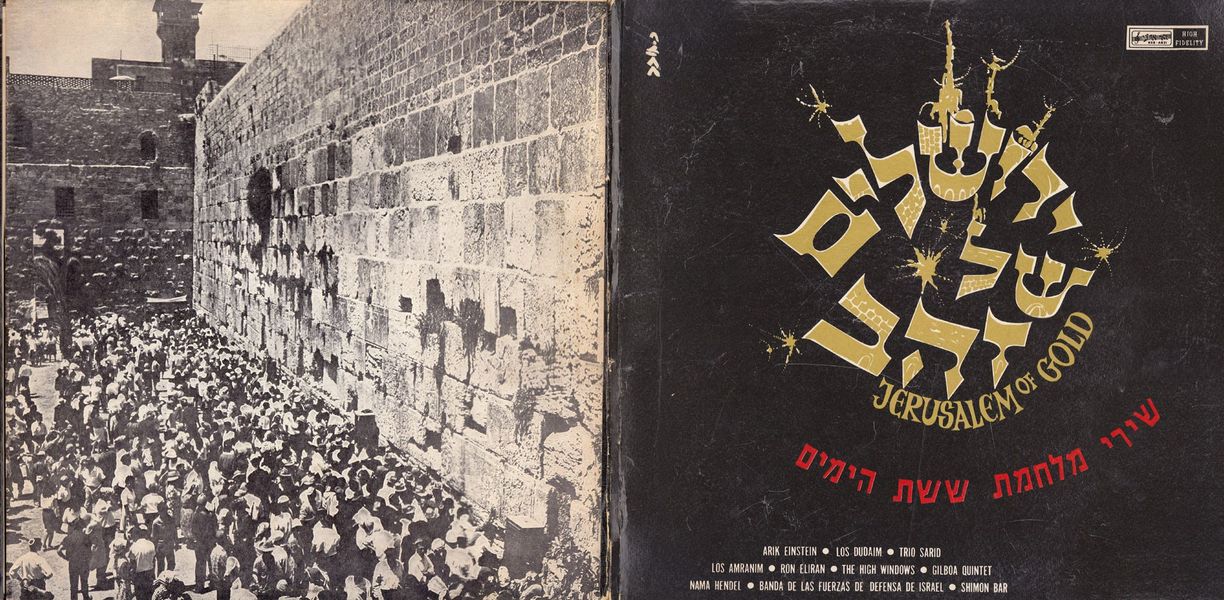
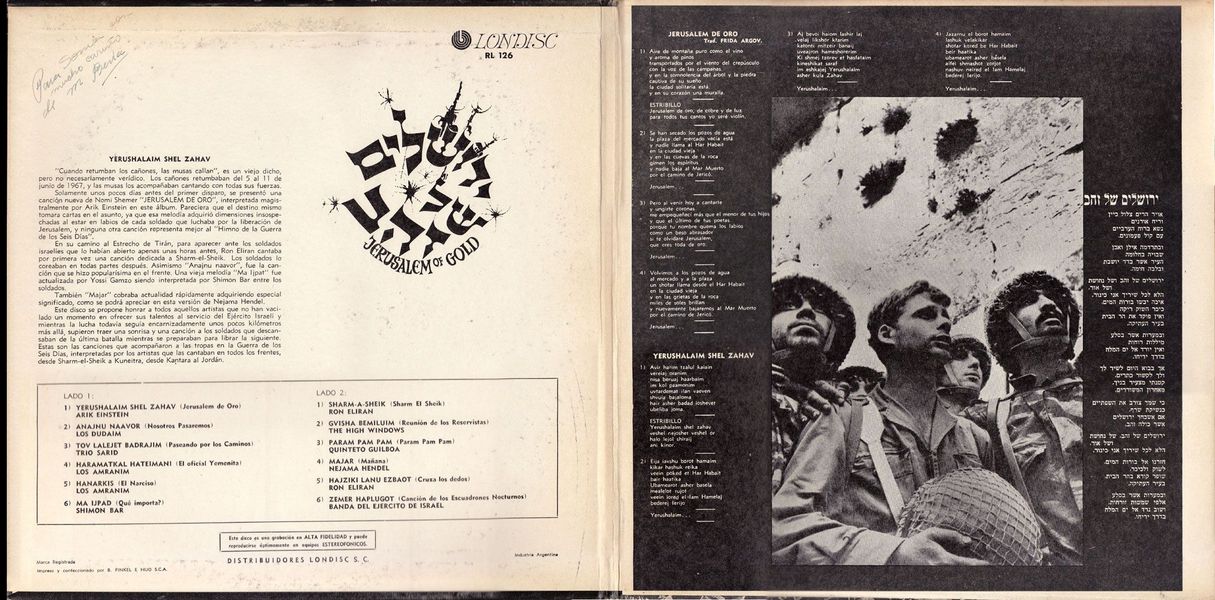 |
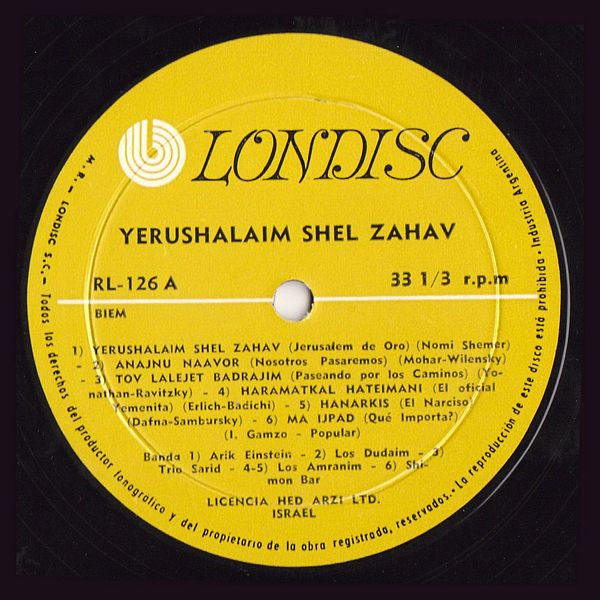
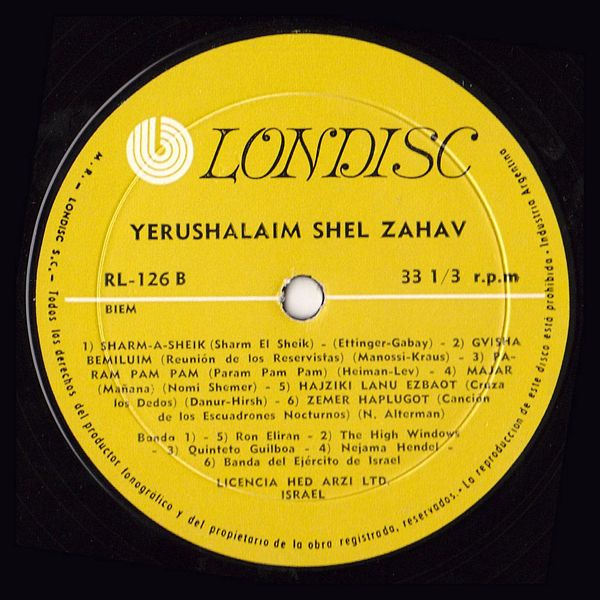 |
Sleeve Notes
"Cuando retumban los cañones, las musas callan", es un viejo dicho, pero no necesariamente verídico. Los cañones retumbaban del 5 al 11 de junio de 1967, y las musas los acompañaban cantando con todas sus fuerzas.
Solamente unos pocos días antes del primer disparo, se presentó una canción nueva de Nomi Shemer "JERUSALEM DE ORO", interpretada magistralmente por Arik Einstein en este álbum. Pareciera que el destino mismo tomara cartas en el asunto, ya que esa melodía adquirió dimensiones insospechadas al estar en labios de cada soldado que luchaba por la liberación de Jerusalem, y ninguna otra canción representa mejor al "Himno de la Guerra de los Seis Días".
En su camino al Estrecho de Tirán, para aparecer ante los soldados israelíes que lo habían abierto apenas unas horas antes, Ron Eliran cantaba por primera vez una canción dedicada a Sharm-el-Sheik. Los soldados lo coreaban en todas partes después. Asimismo "Anajnu naavor", fue la canción que se hizo popularísima en el frente. Una vieja melodía "Ma Ijpat" fue actualizada por Yossi Gamzo siendo interpretada por Shimon Bar entre los soldados.
También "Majar" cobraba actualidad rápidamente adquiriendo especial significado, como se podrá apreciar en esta versión de Nejama Hendel.
Este disco se propone honrar a todos aquellos artistas que no han vacilado un momento en ofrecer sus talentos al servicio del Ejército Israelí y mientras la lucha todavía seguía encarnizadamente unos pocos kilómetros más allá, supieron traer una sonrisa y una canción a los soldados que descansaban de la última batalla mientras se preparaban para librar la siguiente. Estas son las canciones que acompañaron a las tropas en la Guerra de los Seis Días, interpretadas por los artistas que las cantaban en todos los frentes, desde Sharm-el-Sheik a Kuneitra, desde Kantara al Jordán.
"When the cannons rumble, the muses are silent," is an old saying, but not necessarily true. The cannons rumbled from 5 to 11 June 1967, and the muses accompanied them singing with all their might.
Only a few days before the first shot, a new Nomi Shemer song "JERUSALEM OF GOLD", masterfully performed by Arik Einstein was presented on this album. It would seem that fate itself took a toll on the matter, since that melody took on unsuspected dimensions by being on the lips of every soldier struggling for the liberation of Jerusalem, and no other song best represents the "Six-Day War Hymn" .
On his way to the Strait of Tiran, to appear before the Israeli soldiers who had opened it only a few hours before, Ron Eliran sang for the first time a song dedicated to Sharm-el-Sheik. The soldiers chanted him everywhere afterwards. Also "Anajnu Naavor (We Shall Pass)", was the song that became very popular in the front. An old melody "Ma Ipad (Who Cares)" was updated by Yossi Gamzo being interpreted by Shimon Bar between the soldiers.
Also "Majar (Tomorrow)" became a topicality quickly acquiring special meaning, as will be seen in this version of Nama Hendel.
This album intends to honor all those artists who have not hesitated a moment to offer their talents to the service of the Israeli Army and while the fight still went on a few miles beyond, knew to bring a smile and a song to the soldiers who rested of The last battle as they prepared to deliver the next. These are the songs that accompanied the troops in the Six Day War, played by the artists who sang on all fronts, from Sharm el-Sheikh to Kuneitra, from Kantara to the Jordan.